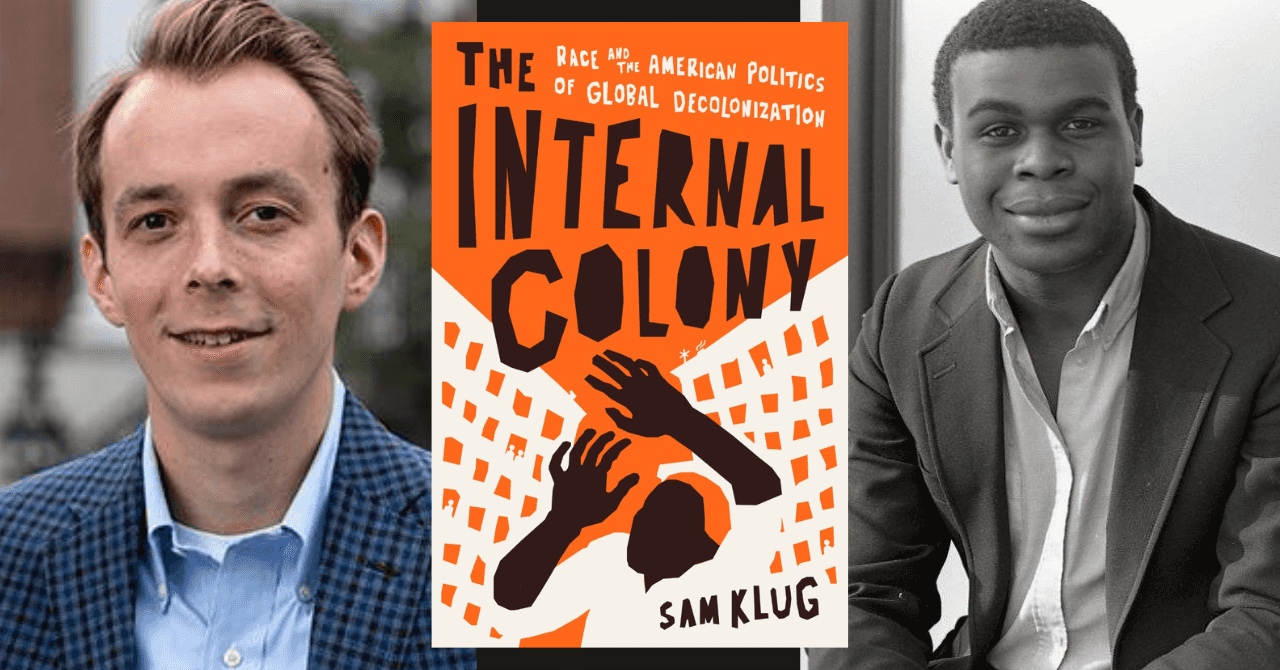- Cafe
- Bookstore
- Upcoming events
- Book an event
- Catering
- Institutional and bulk sales
- About Red Emma's
- Press
- Buy gift cards
- Red Emma's merch
- Jobs
- Red Emma's Education Fund
- Oleander
- Baltimore Book Festival 2025

Sam Klug presents "The Internal Colony: Race and the American Politics of Global Decolonization" in conversation w/ Osita Nwanevu
This event has already happened.
In THE INTERNAL COLONY, Sam Klug reveals the central but underappreciated importance of global decolonization to the divergence between mainstream liberalism and the Black freedom movement in postwar America. Klug reconsiders what has long been seen as a matter of primarily domestic policy in light of a series of debates concerning self-determination, postcolonial economic development, and the meanings of colonialism and decolonization. These debates deeply influenced the discord between Black activists and state policymakers and formed a crucial dividing line in national politics in the 1960s and 1970s.
The result is a history that broadens our understanding of ideological formation—particularly how Americans conceptualized racial power and political economy—by revealing a much wider and more dynamic network of influences. Linking intellectual, political, and social movement history, THE INTERNAL COLONY_ _illuminates how global decolonization transformed the terms of debate over race and social class in the twentieth-century United States.
Sam Klug is an Assistant Teaching Professor of History at Loyola University Maryland. His writing has appeared in Politico Magazine, Vox, Boston Review, Dissent, and other venues.
Osita Nwanevu is a contributing editor at The New Republic and a columnist at The Guardian. He is a former staff writer at The New Republic, The New Yorker, and Slate, and his work has also appeared in The New York Times, The New York Review of Books, The Nation, Harper’s Magazine, the Columbia Journalism Review, and Gawker. His first book, The Right of the People: Democracy and the Case for a New American Founding, will be published by Random House next year. Nwanevu is a former editor in chief of the South Side Weekly, a Chicago alternative newspaper. He is a graduate of the College at the University of Chicago and the Harris School of Public Policy. He lives in Baltimore.

